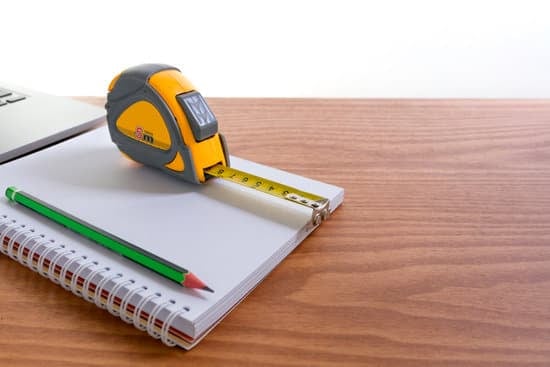In today’s rapidly advancing technological landscape, more and more homeowners are turning to home automation improvements as a means of increasing not only their convenience and comfort but also their property value. Home automation refers to the integration of technology into various aspects of a household, allowing for remote control, monitoring, and automation of different systems and devices.
From controlling lighting and temperature to managing security systems and entertainment devices, home automation offers a range of possibilities that can significantly enhance daily living experiences.
The concept of home automation is gaining popularity among homeowners who recognize its potential for boosting their property value. With the rise in smart homes and connected devices, prospective buyers are increasingly seeking residences equipped with advanced automation technologies.
The allure lies in the ability to have full control over every aspect of one’s living environment, whether it be adjusting lights or setting alarms from a smartphone or utilizing voice command capabilities to simplify daily routines. As a result, proper implementation of home automation improvements can prove to be a wise investment for homeowners who wish to maximize the worth of their properties.
While it may seem like yet another passing tech trend, the impact of home automation on property value cannot be underestimated. Incorporating smart features into your home not only enhances its appeal but also addresses key factors that influence potential buyers’ decisions. In this article, we will explore the various ways in which incorporating home automation technology into a property can positively affect its overall value.
From increased energy efficiency and improved security to enhanced convenience and sophisticated integration with other smart devices, we will delve into the vast benefits that come with embracing this modern trend in real estate. So let’s dive into how exactly home automation improvements can boost your property’s worth while revolutionizing your daily lifestyle.
The Impact of Home Automation on Property Value
Home automation technology has become increasingly popular among homeowners, and one of the key reasons is its potential to increase a property’s value. Incorporating home automation improvements into a property can positively impact its overall value in several ways.
Firstly, one of the significant benefits of home automation is increased energy efficiency. With the ability to control and optimize energy usage, homeowners can reduce their energy consumption and lower their utility bills. This long-term cost savings not only adds appeal to potential buyers but also positions the property as environmentally friendly.
According to a report by Allied Market Research, the global smart homes market is expected to grow at a CAGR of 13.52% from 2021 to 2028. As environmental consciousness continues to rise, properties equipped with energy-efficient features are likely to attract more buyers.
Secondly, home automation systems offer improved security and safety features that can increase the value of a property. Smart locks, surveillance cameras, and motion sensors provide enhanced protection against intruders and allow homeowners to monitor their properties remotely. These security enhancements not only provide peace of mind for homeowners but also make the property more attractive to potential buyers who prioritize safety and security.
Lastly, incorporating home automation technology adds convenience and comfort to daily living. Automated lighting systems allow homeowners to control lights remotely or set schedules for automatic adjustments, while smart thermostats enable temperature control based on individual preferences or preset schedules.
Voice-activated assistants like Amazon Alexa or Google Home add another level of convenience by allowing homeowners to control various aspects of their home with simple voice commands. These features enhance daily comfort and make the property more desirable in the eyes of potential buyers who appreciate modern conveniences.
| Advantages | Impacts |
|---|---|
| Increased energy efficiency | Long-term cost savings, environmental appeal |
| Improved security and safety features | Peace of mind, increased desirability for potential buyers |
| Enhanced convenience and comfort | Better daily living experience, modern appeal |
With these advantages in mind, it is evident that incorporating home automation improvements can significantly increase a property’s value. Whether it be the energy-saving features, enhanced security measures, or improved daily living experience, home automation technology has the potential to attract tech-savvy buyers and position a property as desirable in an evolving real estate market.
Increased Energy Efficiency
Incorporating home automation technology into a property can have a significant impact on its overall value. One of the key benefits that home automation brings is increased energy efficiency. With the ability to control and optimize energy usage, homeowners can reduce their utility bills and save money in the long run.
Home automation systems offer features such as smart thermostats, which allow homeowners to set customized temperature schedules and remotely control heating and cooling. This means that rooms can be cooled or heated only when necessary, leading to lower energy consumption and reduced costs. Additionally, automated lighting systems enable homeowners to schedule or control lights remotely, ensuring that lights are not left on unnecessarily. This results in further energy savings and cost reduction.
The increased energy efficiency that comes with home automation is highly desirable for potential buyers. As the importance of sustainability and environmental responsibility grows, more buyers are looking for homes that prioritize energy efficiency. Properties with integrated home automation systems provide a clear advantage in this regard.
Not only does this attract environmentally conscious buyers, but it also demonstrates a modern and forward-thinking approach to living. The value of a property with enhanced energy efficiency through home automation is further amplified by the long-term cost savings associated with reduced utility bills.
Overall, incorporating home automation technology into a property offers substantial benefits in terms of increased energy efficiency. By enabling better control over energy usage, homeowners can save money on their utility bills while making their property more attractive to potential buyers who value sustainability and cost savings. As the demand for eco-friendly homes continues to rise, investing in home automation improvements can significantly increase the value of your property in today’s evolving real estate market.
Improved Security and Safety
When it comes to home automation improvements, one of the key benefits is the enhanced security and safety they provide. Home automation systems offer a range of security features that can significantly improve the overall protection of a property. Smart locks, for example, allow homeowners to remotely lock or unlock their doors, providing convenience and added security. These locks can also be programmed to send notifications whenever someone enters or exits the property.
Surveillance cameras are another popular security feature in home automation systems. These cameras can be strategically placed around the property to monitor both its interior and exterior. Homeowners can access live feeds from these cameras through their smartphones or other devices, allowing them to keep an eye on their property even when they’re away. The presence of surveillance cameras alone can act as a deterrent for potential burglars and intruders.
Motion sensors are also commonly integrated into home automation systems to detect any unusual movement within the property. These sensors trigger alarms and notifications when activity is detected in areas where there shouldn’t be any, alerting homeowners to potential threats or break-ins. Some advanced motion sensors even have built-in pet-detection technology to prevent false alarms caused by pets.
The incorporation of these security features not only increases the value of a property but also provides peace of mind for homeowners. Knowing that their home is equipped with advanced security measures gives them a sense of comfort and assurance.
Additionally, having a secure and safe property can be appealing to potential buyers who prioritize safety when looking for their next home. Therefore, investing in home automation improvements that enhance security is a wise decision for homeowners looking to increase their property value while ensuring the safety of their loved ones.
Enhanced Convenience and Comfort
Automated Lighting
One of the key features of home automation that enhances convenience and comfort is automated lighting. With smart lighting systems, homeowners can easily control the lights in their property using their smartphones or voice commands. This means no more getting up to turn off lights in different rooms, as you can simply use an app or your voice to adjust the lighting throughout your home.
Automated lighting also allows for scheduling and customization options, so you can create different lighting scenes for different moods or activities. Whether it’s a cozy movie night or a bright and energizing workspace, automated lighting provides flexibility and ease of use.
Temperature Control
Another aspect of home automation that contributes to convenience and comfort is temperature control. Smart thermostats allow homeowners to remotely monitor and control their heating and cooling systems from anywhere using their smartphones. This means you can ensure optimal comfort levels by adjusting the temperature before you arrive home or even while lying in bed.
Additionally, some smart thermostats have learning capabilities that adapt to your preferences and schedule, automatically adjusting the temperature based on your habits. By maintaining a comfortable environment without unnecessary energy consumption, smart temperature control not only adds convenience but also promotes energy efficiency.
Voice-Activated Assistants
The integration of voice-activated assistants like Amazon Alexa or Google Home further enhances convenience within a smart home. These devices serve as virtual assistants capable of performing various tasks through voice commands. From controlling other smart devices to providing information, playing music, setting reminders, or even ordering products online, these assistants streamline daily routines and add an extra layer of convenience.
Imagine being able to dim the lights, adjust the thermostat, play music, and check the weather forecast all with a simple voice command while cooking dinner or relaxing on the couch. The intuitive nature of these voice-activated assistants brings an unparalleled level of accessibility and ease-of-use to homeowners, significantly enhancing their overall comfort and convenience within the property.
Overall, enhanced convenience and comfort are major benefits of home automation. The ability to control lighting, adjust temperature settings remotely, and have a voice-activated assistant assist with various tasks not only simplifies daily living but also adds a touch of luxury to the overall experience of a property.
These smart home features are highly desirable for potential buyers, as they provide a modern and efficient way to manage one’s living environment. As such, investing in home automation improvements can significantly increase the value of a property by appealing to those seeking the utmost convenience and comfort in their everyday lives.
Integration with Smart Home Devices
When it comes to home automation, one of the key advantages is the ability to integrate with various smart home devices. Home automation systems are designed to communicate and work in harmony with a wide range of smart devices, including thermostats, lighting systems, appliances, cameras, and voice-activated assistants. This seamless integration allows homeowners to have centralized control over their entire smart home ecosystem.
One of the primary benefits of integrating home automation systems with other smart devices is convenience. With a centralized control system, homeowners can use a single interface or mobile app to manage all their connected devices.
For example, they can adjust the temperature, dim the lights, lock/unlock doors, monitor security cameras, and even activate appliances using their smartphone or voice commands. This level of convenience greatly enhances daily living experiences and brings a sense of ease and simplicity to homeowners.
In addition to convenience, integrating home automation systems with other smart devices also enables enhanced customization and personalization. Homeowners have the freedom to create personalized routines or scenes that automate certain tasks based on specific triggers or schedules.
For instance, they can set up a “Good Morning” scene where the lights gradually turn on as they wake up while the coffee maker starts brewing in the kitchen. This level of customization not only improves daily routines but also adds an element of luxury and sophistication that appeals to potential buyers.
Furthermore, integrating home automation systems with smart devices also enhances energy efficiency in homes. By connecting thermostats and lighting systems to a centralized control system, homeowners can easily manage their energy usage by setting schedules or automating adjustments based on occupancy or natural light levels.
For example, when no one is at home during working hours, the thermostat can be automatically set to an energy-saving mode while lights turn off in unoccupied rooms. These energy-saving practices not only lead to lower utility bills but also increase the overall desirability of the property for potential buyers who value sustainability and resource efficiency.
Appeal to Tech-Savvy Buyers
In today’s digital age, technology plays a vital role in people’s lives, and home automation has become increasingly popular among tech-savvy homeowners. The allure of a smart home lies in its ability to offer convenience, comfort, and enhanced connectivity. As a result, incorporating home automation improvements into your property can attract tech-savvy buyers who appreciate the seamless integration of technology into their daily lives.
One key aspect that appeals to tech-savvy buyers is the ability to control various aspects of their homes remotely. With home automation systems, individuals can manage their lighting, thermostat, security cameras, and more through smartphone apps or voice-activated assistants like Amazon Alexa or Google Home.
This level of control allows homeowners to tailor their living environment according to their preferences even when they are not physically present on the property. The convenience and flexibility offered by these features greatly enhance the appeal of a property for tech-savvy buyers who value connectivity and control.
Additionally, tech-savvy individuals often seek out properties with advanced automation features due to the scalability and customization options these systems provide. Home automation systems can be easily expanded upon or integrated with other smart devices and appliances like smart refrigerators or entertainment systems.
This compatibility allows users to create an interconnected ecosystem within their homes, further enhancing convenience and functionality. For those who prioritize staying up-to-date with the latest technological advancements, a smart home becomes an attractive option due to its future-proofing potential.
To summarize, integrating home automation improvements into your property can greatly increase its appeal among tech-savvy buyers who value convenience and connectivity. The ability to control various aspects of their homes remotely through smartphone apps or voice-activated assistants adds another layer of desirability for this demographic.
Furthermore, compatibility with other smart devices and the scalability options provided by home automation systems further enhance the appeal of a property. In an ever-evolving real estate market, staying ahead and catering to the needs and desires of tech-savvy buyers can be key to maximizing the value of your property.
Case Studies
Home automation technology has been gaining significant popularity among homeowners, and for good reason. Not only does it provide convenience and comfort, but it can also significantly increase the value of a property. To further illustrate the impact of home automation on property value, let’s take a look at some real-life case studies where homeowners have witnessed a remarkable increase in their property value after integrating home automation improvements.
Case Study 1: John and Sarah’s Smart Home Transformation
John and Sarah, a couple living in a suburban neighborhood, decided to invest in home automation improvements to enhance their daily living experience and increase the value of their property. They incorporated various smart features such as automated lighting, temperature control, security cameras, and voice-activated assistants throughout their home. After completing the upgrades, they decided to sell their house.
To their surprise, they received multiple offers above the asking price within days of listing their property. The integration of home automation not only attracted potential buyers but also resulted in a 10% increase in the final sale price compared to similar homes without such features.
Case Study 2: Michael’s Energy-Efficient Smart Home
Michael, an environmentally-conscious homeowner, invested in energy-efficient home automation improvements to reduce his carbon footprint and save on energy costs. He installed smart thermostats that allowed him to control the temperature remotely and automated lighting systems that adjusted based on occupancy sensors. These upgrades not only made his daily life more convenient but also significantly increased the overall appeal of his property when he decided to sell it.
Potential buyers were impressed by the reduced energy consumption and long-term cost savings associated with these smart features. As a result, Michael was able to sell his property at a premium price with a 15% increase compared to similar homes in the area.
These case studies clearly demonstrate how integrating home automation improvements can have a substantial impact on the value of a property. Whether it’s through enhanced convenience, increased energy efficiency, or improved security features, home automation has become a game-changer in the real estate market. By investing in these technologies, homeowners not only benefit from their daily use but also enjoy a significant return on investment when it comes time to sell their property.
| Case Study | Property Value Increase |
|---|---|
| John and Sarah’s Smart Home Transformation | 10% |
| Michael’s Energy-Efficient Smart Home | 15% |
Return on Investment (ROI)
Return on Investment (ROI): Discussing the potential ROI associated with investing in home automation improvements and how it can positively impact the overall value of a property.
One of the key considerations for homeowners when deciding whether to invest in home automation improvements is the potential return on investment (ROI). While the initial cost may seem significant, incorporating smart technology into a property can yield substantial long-term benefits and increase its overall value.
One way that home automation improvements can provide a positive ROI is through increased energy efficiency. By integrating automated systems for lighting, heating, and cooling, homeowners have better control over their energy consumption.
This not only helps them save on utility bills but also makes their property more attractive to potential buyers who are increasingly conscious about sustainable living. According to studies by the American Council for an Energy-Efficient Economy, homes with energy-efficient features tend to command higher prices in the real estate market.
Another aspect that contributes to the ROI of home automation investments is improved security and safety. With smart locks, surveillance cameras, and motion sensors, homeowners can remotely monitor their property and receive alerts in case of any suspicious activity. This added layer of security not only enhances peace of mind but also increases the perceived value of a property. Buyers are willing to pay more for homes that come equipped with these advanced security features.
Furthermore, from a convenience standpoint, investing in home automation technology can provide a favorable ROI. Automated lighting systems that adjust based on occupancy or time of day increase convenience while reducing energy wastage. Having voice-activated assistants like Amazon Alexa or Google Home allows homeowners to control various aspects of their homes using simple voice commands. These conveniences not only enhance daily living but also make a property stand out among competitors in the real estate market.
Conclusion
In conclusion, incorporating home automation improvements into your property can have a significant impact on its overall value. The benefits and advantages of home automation are numerous and varied, making it an appealing feature for potential buyers in the real estate market. From increased energy efficiency to improved security and safety, as well as enhanced convenience and comfort, home automation offers a range of benefits that can positively influence property value.
One key advantage of home automation is its ability to increase energy efficiency. By allowing homeowners to better control and optimize energy usage through features such as smart thermostats and automated lighting systems, home automation can lead to long-term cost savings and reduced environmental footprint. This not only appeals to eco-conscious buyers but also adds value to the property by ensuring lower utility bills.
Furthermore, the security enhancements provided by home automation systems can significantly boost property value. With features like smart locks, surveillance cameras, and motion sensors, homeowners can enjoy peace of mind knowing their property is well-protected. These systems not only deter potential intruders but also provide remote access and monitoring capabilities, further increasing their appeal.
In today’s highly connected world, tech-savvy buyers are increasingly looking for homes equipped with advanced technology solutions like home automation. The seamless integration of smart devices and appliances with home automation systems adds to the modern appeal of a property. This attracts buyers who appreciate the convenience and connectivity offered by these systems, ultimately leading to an increase in property value.
As the real estate market continues to evolve, staying ahead means embracing technological advancements like home automation improvements. By investing in these upgrades, homeowners can expect a positive return on investment both financially and in terms of increased desirability in the market.
Home automation is no longer just a luxury; it has become an essential feature that potential buyers seek when considering properties. Therefore, integrating home automation into your property is a wise choice that can help maximize its value in today’s competitive real estate landscape.
Frequently Asked Questions
What improves property value the most?
Several factors can significantly improve property value, but one of the most impactful is location. A desirable neighborhood with low crime rates, good schools, and convenient access to amenities like shopping centers, parks, and transportation hubs tends to increase the value of any property within it.
Additionally, maintaining the condition of the property through regular repairs and renovations can also enhance its value. Investing in updates such as modernizing the kitchen or bathrooms, improving the curb appeal by landscaping or repainting the exterior, and ensuring that the house is energy-efficient are all elements that can positively impact property value.
What actually increases property value?
There are several factors that can actually increase property value beyond just location and upkeep. Making strategic home improvements can be a major boost for a property’s worth. Adding square footage through additions or finishing unused areas such as basements and attics can increase living space and attract potential buyers who seek more room.
Upgrading key features like kitchens and bathrooms with high-quality materials and modern fixtures often have a positive effect on valuation since these areas tend to be central to a home’s functionality. Furthermore, features like hardwood flooring, updated wiring for technology integration, energy-efficient appliances, or even adding additional bedrooms or bathrooms may positively influence property value.
How can I drastically increase my home value?
To drastically increase home value, consider investing in major renovations or additions that address key buyer preferences in your area. A project such as creating an open floor plan by removing walls between rooms could give your home a more modern feel. Another option is upgrading outdated systems throughout the house; replacing an old HVAC system with an energy-efficient one or installing solar panels can demonstrate both sustainability awareness and cost savings potential to prospective buyers in today’s market.
Additionally, expanding outdoor living spaces like building a deck or patio area with functional amenities such as fire pits or outdoor kitchens not only increases usable square footage but also appeals to those seeking more entertaining space. Ultimately, maximizing space utilization while incorporating sought-after features tailored to your target market can significantly impact and increase your home’s value.

I’m thrilled to have you here as a part of the Remodeling Top community. This is where my journey as an architect and remodeling enthusiast intersects with your passion for transforming houses into dream homes.





